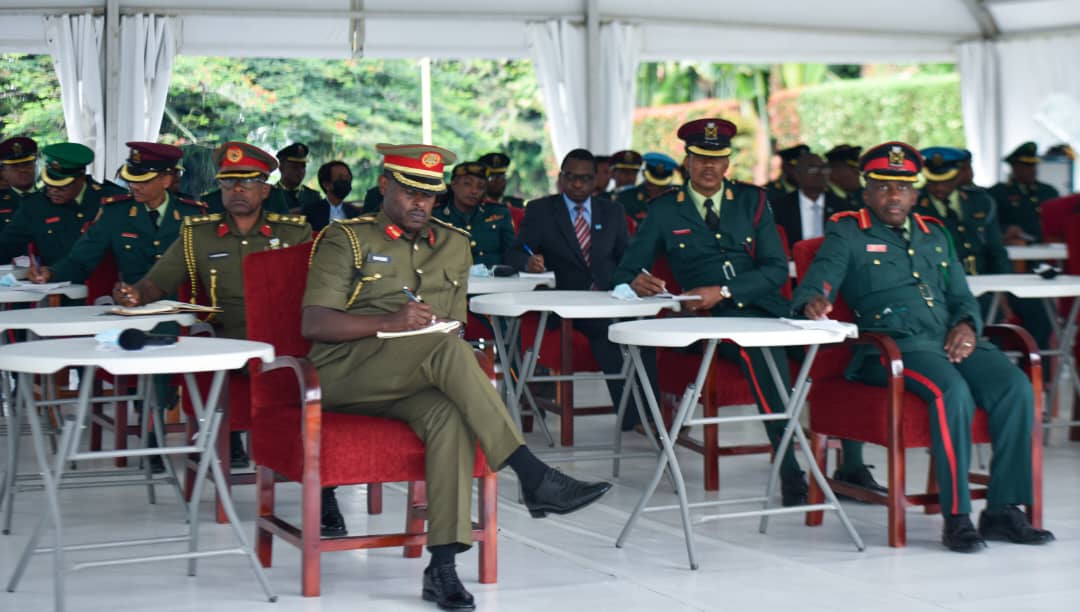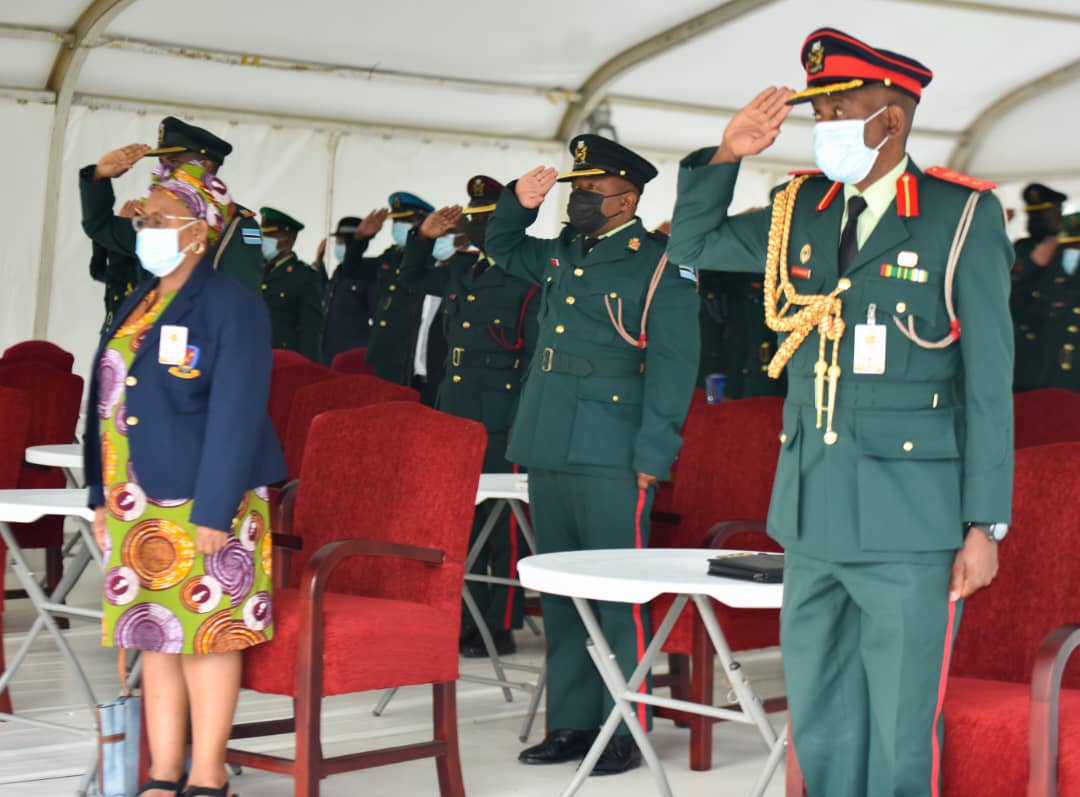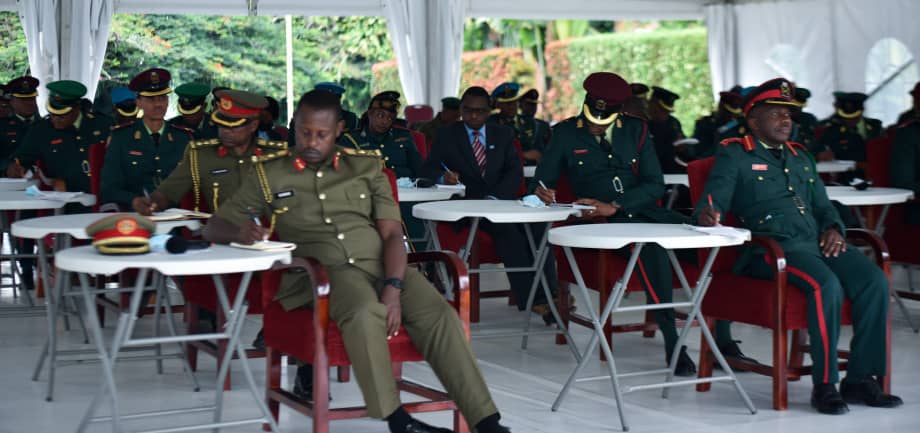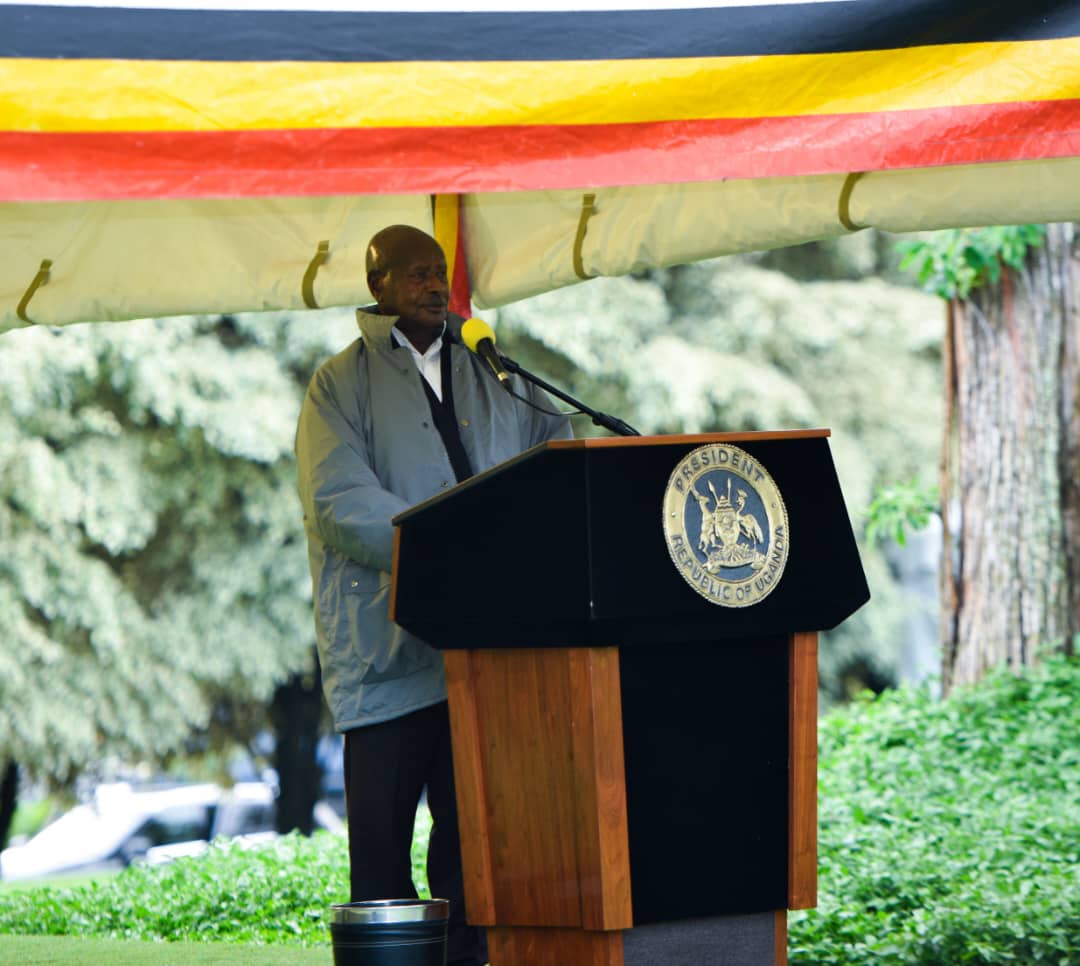President Yoweri Kaguta Museveni, who also serves as the Commander In Chief of the Uganda People’s Defence Forces (UPDF), has attributed Uganda’s current stability to a significant ideological and philosophical shift within the country.
Speaking during a lecture to a delegation of military students and staff from Botswana Defence Command and Staff College, he emphasized the importance of moving away from politics of identity towards politics of interest.
“The stability you are talking about is a consequence of the Ideological and philosophical shift here in Uganda, with the fact that we rejected the politics of identity and started advising our people about the politics of interest,” Museveni said.
Museveni pointed out that before the National Resistance Movement (NRM) government took power 37 years ago, Uganda was in turmoil and on the verge of becoming a failed state. However, through the adoption of the right ideology, the country has since progressed, becoming peaceful and developing steadily.
“Right from Independence, we had a crisis of what is primary? What is important? Is it identity or interest? That’s where the departure point was because some people have been saying that what is important in public management politics is identity; that means tribe, religion, race in some cases, even gender to some extent and you find people like in the case of Uganda here, they formed political parties based on identity,” Gen. Museveni disclosed.

The President urged the students to prioritize politics of interest, emphasizing that this ideology is crucial for their country’s prosperity. He noted that historically, Uganda faced a crisis of determining what should be prioritized in public management – identity or interest. This led to the formation of political parties based on identity, such as tribe, religion, and race.
“The good thing is that some of us were part of those parties from 1960 but by 1965 we had become disillusioned and said no, what are you talking about? Why is identity so important? Because all these groups were talking about religions and tribes yet they have needs, they need food, they need shelter, jobs and wealth. Why don’t you talk about their needs? Why do you talk about their identity? Are you not a false prophet? Are you not providing a pseudo ideology?” he wondered.
President Museveni stressed the importance of producing goods and services to generate wealth. He explained how his own tribe, which relied on cattle keeping and banana growing, became prosperous by producing and selling milk, beef, and bananas. He highlighted the shift towards patriotism, where loving Uganda as a whole was more important than just one’s tribe, as it contributed to wealth creation.
“The only way my tribe, who are cattle keepers and banana growers can be prosperous is to produce a good or a service and sell it. In this case, they produce milk, beef and bananas. But now once they do that, they have one problem; they do not easily buy from one another. Why? Because they all have similar products. It is the other Ugandans who don’t produce milk, beef or bananas because they are fishermen, they are producing other things, they are the ones who rescue me and buy my products,” he said.
“When we saw that Uganda was more useful to me as a wealth creator than my tribe, then we developed the principle of Patriotism; love Uganda, you need it, it is more useful than loving just your tribe. You need Uganda for your prosperity.” he added

Furthermore, Museveni recognized the need for Uganda to access larger markets, emphasizing the importance of East Africa and the African market in the country’s prosperity.
“We also discovered that even when you love Uganda, Uganda is not enough, we need East Africa. That is why you heard us playing two anthems, the one for Uganda and that of East Africa because for our prosperity, we need the East African market, we also need the African market. Therefore, our second principle becomes Pan-Africanism.” he noted
He also discussed the need for socio-economic transformation, encouraging adults to join the money economy by engaging in commercial agriculture, manufacturing, services, and ICT sectors. He pointed out that a significant portion of Ugandan households had already transitioned to the money economy.
The President attributed Uganda’s stability to the principles of democracy, government for the people by the people. He underscored that the focus was on individuals’ abilities rather than their tribal or religious backgrounds.
“Principle number four is Democracy; government for the people by the people. When you see the stability in Uganda, it is because of that new thinking that came up. Otherwise, Uganda was very violent, we lost 800,000 people, killed extra judiciary by Idi Amin and those groups and because of the four principles, we have been able to build a very strong army. Part of the problem why some countries cannot develop a strong army is because of sectarianism. We don’t look at people’s tribes, their religion, we don’t care if you are a woman or man as long as you can shoot properly, that is what we are interested in.” he said

Museveni cautioned against the exportation of raw materials, advocating for value addition to maximize benefits from resources. He mentioned Uganda’s transition to a knowledge economy, with investments in scientific research, automobile production, and vaccine development.
“We should add value to our raw materials to benefit more from our resources,” he said.
“We are also introducing the knowledge economy because people here are quite well educated as you saw in the Industrial Research Centre, that was just a small part, there are very many highly educated people, scientists whom the government is supporting to make automobiles, vaccines and all that.” He stated further
In conclusion, President Museveni emphasized that Uganda’s stability and development had been a result of these guiding principles and the country’s shift from raw material production to industrial production.
the head of the Delegation from Botswana Defence Command and Staff College, Col. Dumisani Bakang Ndzinge expressed their gratitude to President Museveni for his insightful lecture and commended his visionary leadership, which has contributed to Uganda’s stability and economic growth.




